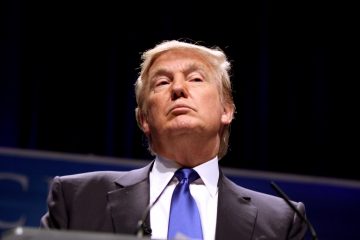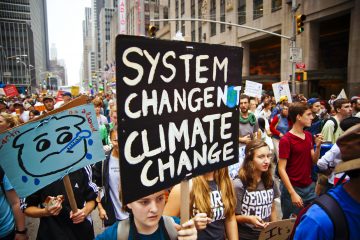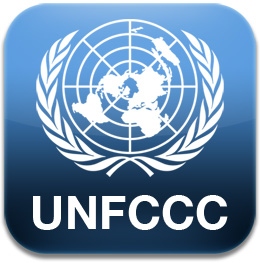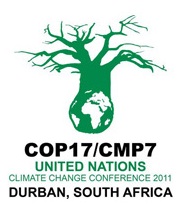
Trump has compromised climate security strategies
Much has been said about the global environmental, economic and leadership consequences of United States President Donald Trump’s decision to withdraw from the Paris climate agreement but there is also a national security dimension. Trump’s decision ignores an important development in global security centred on climate change. The US had been in a prime position to link climate to international security which, rightly or wrongly, could be leveraged for foreign policy in pursuit of climate security. The US has been a leader in climate security, an approach rivalling climate justice reasoning in climate politics. For much of the history of international climate politics, there has been a dominant discourse of climate justice. Early environmental conferences focused on planetary justice and …

Carving up the climate communication landscape
Warren Pearce’s new ‘Making Climate Social’ project seeks to investigate the ‘contributors, content, connections and contexts of social media climate change communications’ in order to determine ‘what the social media revolution might mean for the tricky relationship between science, politics, and publics.’ Warren recently invited me to take part in a workshop to discuss his project, and this post arises out of that meeting. Apart from providing an excellent opportunity for alliteration, what can research into social media tell us about the ‘contributors, content, connections, and contexts’ of climate communication? Four types of participation In considering that question, I have been thinking how to classify the different types of participation in climate change discussions. To this end, I adapted a …

A Window of Opportunity Opens in the International Climate Talks
Since the collapse of the 2009 Copenhagen conference, much of what has gone on at the negotiating sessions of the UN Framework Convention on Climate Change (UNFCCC) has slipped off the radar of both public and political attention. But a new chapter in the international climate change negotiations begins this year – and could be a unique moment in efforts to craft international agreement on how the world will collectively attempt to slow global climate change.

Montreal’s Legacy: How Ozone Success Shaped Climate Politics
Last June, the international environmental community gathered at the Rio+20 UN Conference on Sustainable Development set for hard-fought negotiations on sustainable development. This occurred with the backdrop of decades of questionable progress on global environmental issues like deforestation, biodiversity and climate change. Old hands lamented the missed opportunities and false dawns in the years since the 1992 Rio Earth Summit. Rio+20 needed to be a turning point — seen as a once-in-a-generation opportunity to find a new paradigm for sustainable development and kickstart a transition towards ‘green growth’ [1]. But while Rio+20 marked the marquee environmental summit of 2012, another much quieter – and perhaps more significant – anniversary takes place in a few days’ time, one that does much to tell us about …

EU and China’s institutional diplomacy in the field of climate change.
Forthcoming Occasional Paper to be published by the European Union Institute of Security Studies (EU ISS). Author: Pietro De Matteis. Summary and Policy Recommendations. This Occasional Paper aims at giving another perspective on the relevance of climate change for the EU’s foreign policy. Considering its linkages with various policy areas such as energy security, economic growth, foreign policy and even political stability, climate change is a major “game-changer” in international relations, and constitute a significant opportunity to reshape the international order according to the new global equilibria. As such, the set up of the climate change regime constitutes for the EU both an opportunity and a threat, in as much as it may either accelerate Europe’s decline as a …
Media interest in climate change takes a dive
A year can be a very long time in the life of media interest. In December 2009, I was one of more than 4,000 journalists who attended the UN’s Copenhagen summit on climate change – probably the largest press presence for an international event outside of sport. The journalists came from 119 countries, and suffered the freezing temperatures and disappointing results. It wasn’t just the Western press who were there. Emerging powers like Brazil and China both had more than 100 journalists. (see the RISJ report at http://reutersinstitute.politics.ox.ac.uk/publications/risj-challenges/summoned-by-science.html) One year on, and the next major summit at the Mexican resort of Cancun was much less of an attraction – despite the beaches, tequila and abundance of sun. This time, around …
The “Post-Copenhagen Era” and Cancun: an opportunity for the EU and China.
Today there is no agreement on what should replace the Kyoto Protocol (KP) expiring in 2012. What is certain, however, is that the framing of the new climate regime may create new scenarios, involving new fora and strengthening certain international players while weakening others.









